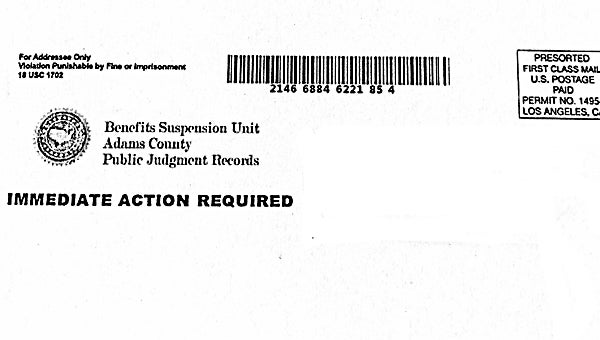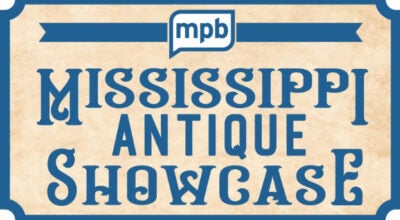Adams County officials warn of tax scam letter
Published 10:25 am Wednesday, August 19, 2020

- Adams County officials are warning residents of a tax scam that is arriving in people’s mailboxes throughout the county.
|
Getting your Trinity Audio player ready...
|
NATCHEZ — Adams County officials are warning residents of a tax scam that is arriving in people’s mailboxes throughout the county.
The letter states it is being sent from “Benefits Suspension Unit, Adams County, Public Judgment Records.”
“This notice has been issued against the debtor (name of recipient) because of a lien filing due to the tax liability that has not been paid,” the scam letter states in part. “This letter serves as a final judgmental notice.”
The letter goes on to list an amount owed, a payment due date and states “Notice of Intent to Levy Social Security Benefits” and lists a telephone number to call. Officials emphasize people should not call the number or respond to the letter.
“The State of Mississippi can now take enforcement action such as seizing Social Security benefits and garnishing wages and bank accounts to satisfy the outstanding debt owed. …”
Adams County Board of Supervisors Attorney Scott Slover said Adams County Chancery Clerk Brandi Lewis brought the letter to his attention this week after a taxpayer sent her a copy of the letter. Slover said he is not sure how many people in the county might have received the intimidating scam letter.
“It is not from the state. It is not from the county,” Slover said, adding that anyone who receives such a letter should disregard it and not call the telephone number listed in the letter. “If they want their tax information, contact the courthouse and you will get a true number there.”
The Adams County Chancery Clerk’s Office can be reached at 601-446-6684 and the Adams County Tax Collector’s Office can be reached at 601-442-6732.
The scam first appeared in the United States in March after the COVID-19 pandemic began, according to the Social Security Office of the Inspector General, and has been spreading throughout the nation.
“Social Security beneficiaries have received letters through the U.S. Mail stating their payments will be suspended or discontinued unless they call a phone number referenced in the letter,” a press release for the inspector general’s office dated March 20 states. “Scammers may then mislead beneficiaries into providing personal information or payment via retail gift cards, wire transfers, internet currency, or by mailing cash, to maintain regular benefit payments during this period of COVID-19 office closures.”
The press release states the Social Security office will never:
* Threaten you with benefit suspension, arrest, or other legal action unless you pay a fine or fee;
* Promise a benefit increase or other assistance in exchange for payment;
* Require payment by retail gift card, cash, wire transfer, internet currency, or prepaid debit card;
* Demand secrecy from you in handling a Social Security-related problem; or
* Send official letters or reports containing personally identifiable information via email.
“If you receive a letter, text, call or email that you believe to be suspicious, about an alleged problem with your Social Security number, account or payments, hang up or do not respond,” the press release states. “We encourage you to report Social Security scams using our dedicated online form, at https://oig.ssa.gov. Please share this information with your friends and family, to help spread awareness about Social Security scams.”
A spokesperson from the Mississippi Attorney General’s office said the office had not yet received any complaints about the suspension of benefits scam.
“However, we do get reports of calls being received from scammers regarding social security cards/benefits,” said Colby Jordan, spokesperson for the Mississippi Attorney General’s office.
Jordan said people should report deceptive or misleading solicitations like these to the Attorney General’s Consumer Protection Hotline at 1-800-281-4418 or consumer@ago.ms.gov.
Jordan offered the following advice for Mississippians:
* Your Social Security number cannot be suspended, revoked, frozen, or blocked.
* A legitimate government employee will not ask you to wire money, send cash or buy gift cards as a form of payment.
* If you are threatened with arrest or some other legal action, it is not the government calling.
* Many times scammers are calling “phishing” for more information. Do not provide any personal information in response to these calls. This includes your complete social security number, your banking information or other financial information.
* Do not trust the number you see coming up on your caller ID as criminals are able to spoof numbers to make it appear that calls are from a government agency.
* The only time someone from Social Security may call you is if you’re working with the agency on some issue or claim. But just to make sure it’s truly the SSA contacting you, hang up and call SSA’s main number at (800) 772-1213 (TTY 1-800-325-0778).
For more information regarding social security scams the consumer may visit the Social Security admiration’s website at https://www.ssa.gov/scam/.





